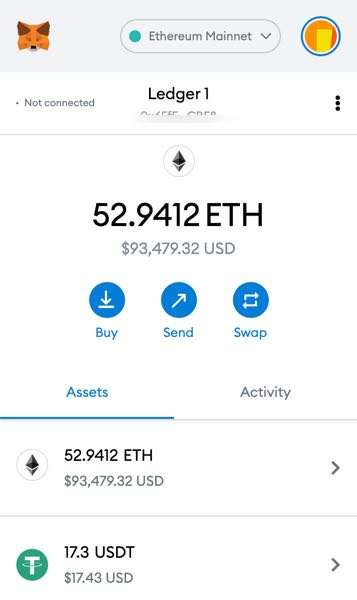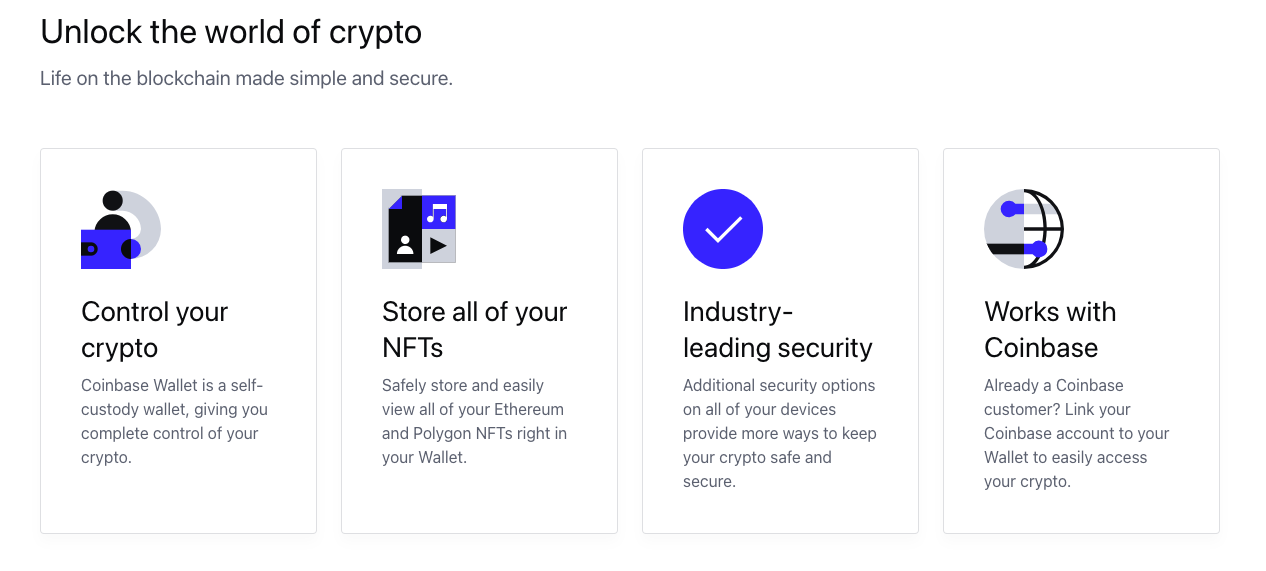Introduction: The Age of Digital Wallets
In the fast-evolving world of cryptocurrency, the debate between “Metamask vs Coinbase Wallet” has captured the interest of both beginners and seasoned crypto enthusiasts. Both wallets have their unique strengths and features. This article delves deep into each, comparing them in multiple dimensions, so users can make an informed choice.
Overview: Metamask and Coinbase Wallet at a Glance
Metamask:
- Type: Browser-based and Mobile Wallet
- Main Use: Ethereum and Ethereum-based tokens
- Features: Integrated with Web3, DApp browser, Decentralized
Coinbase Wallet:
- Type: Mobile Wallet (standalone app)
- Main Use: Multi-currency support
- Features: User-owned private keys, DApp browser, crypto collectibles
Usability and User Experience
Metamask vs Coinbase Wallet in usability is a matter of preference. Metamask’s browser extension makes it seamless for desktop users, especially those engaged in DeFi platforms. Meanwhile, Coinbase Wallet, with its intuitive mobile app, offers a more familiar experience to general mobile users.
Design and Interface
Aesthetic and design can significantly influence user adoption. Coinbase Wallet boasts a sleek, intuitive design tailored for users new to the crypto scene. Its easy-to-understand layout helps demystify many of crypto’s complexities. Metamask, while being a favorite among seasoned crypto enthusiasts due to its features, has seen criticisms for its interface, which some users find less intuitive.

Security Measures
Metamask:
- Provides seed phrases for recovery
- Encrypted passwords
- Optional hardware wallet integration
Coinbase Wallet:
- User-controlled private keys
- Biometric authentication
- Secure enclave for private keys
When discussing “Metamask vs Coinbase Wallet”, security is paramount. Both wallets prioritize user security but in different ways. Metamask allows for hardware wallet integrations, ensuring assets remain offline. In contrast, Coinbase Wallet’s security comes from biometric authentication and secure enclave storage.
Currency Support and Flexibility
The debate intensifies when we discuss flexibility. Metamask, traditionally tailored for Ethereum and its tokens, can now support other blockchains. Conversely, Coinbase Wallet has always been multi-currency, supporting both major coins and lesser-known tokens.
Compatibility with Exchanges
Direct integration with exchanges can streamline a user’s experience. Here, Metamask and Coinbase Wallet brings a distinct difference. Coinbase Wallet has an inherent advantage, given its affiliation with the Coinbase exchange. Users can easily move funds between their Coinbase account and wallet. Metamask, though not affiliated with any exchange, offers easy integrations with decentralized exchanges and platforms.
Speed and Transaction Times
Transaction times can be a deciding factor for many users. Both Metamask and Coinbase Wallet rely on the respective networks they operate on for transaction validations. However, it’s crucial to note that congestion, especially on the Ethereum network, can influence transaction times for both wallets. The fees you’re willing to pay can also impact the speed of your transactions.
Cost and Fees
“Metamask vs Coinbase Wallet” in terms of fees brings a clear distinction. Metamask users encounter gas fees when transacting on the Ethereum network, which can vary. Coinbase Wallet transactions also have fees, but they are often criticized for being higher, especially when transferring to external addresses.
Integration and DApp Browsing
Both wallets excel in DApp integration. Metamask’s Web3 integration has made it a favorite for many DeFi platforms. Coinbase Wallet’s DApp browser, on the other hand, offers a wider range of DApps across various blockchains.

Decentralization and Control
An essential aspect of the crypto ecosystem is decentralization. Metamask, being a non-custodial wallet, ensures users have full control over their private keys. Coinbase Wallet, despite being a product of the centralized exchange Coinbase, operates as a separate entity, giving users full control over their keys. This feature is a nod to the importance of decentralization and user autonomy in the crypto world.
Backup and Recovery
Accidents happen, and in the digital world, recovery is crucial. Comparing Metamask vs Coinbase Wallet in this arena reveals their emphasis on user-friendly backup options. Metamask uses a seed phrase system, allowing users to recover their wallets easily. Coinbase Wallet employs a similar seed phrase backup system, ensuring that even if a user loses their device, their crypto remains secure.
Customer Support and Community Trust
In the realm of “Metamask vs Coinbase Wallet”, community trust and customer support are vital. Coinbase, being a larger company, offers more structured customer support. Metamask, while having a robust online community, sometimes falls short in immediate customer service responses.
Token Swap Features
Token swapping has become an essential feature for many crypto users. While comparing Metamask vs Coinbase Wallet, it’s worth noting that both wallets offer integrated token swap features. Metamask’s ‘Swap’ function allows users to directly exchange one token for another within the wallet, leveraging various decentralized exchanges. Similarly, Coinbase Wallet provides a seamless token swap experience, making it easy for users to diversify their holdings.
User Reviews and Reputation
Community feedback is an excellent indicator of a product’s standing. Both Metamask and Coinbase Wallet have their share of advocates and critics. While Metamask is lauded for its deep integration within the Ethereum ecosystem, it has faced criticisms for its user interface. Coinbase Wallet, given its association with Coinbase, enjoys a level of trust but has faced its share of critiques, especially related to fees.
Future Projections and Roadmaps
Looking ahead, both Metamask and Coinbase Wallet have ambitious roadmaps. With the crypto world’s exponential growth, these wallets aim to integrate more blockchains, improve security features, and enhance user experiences. Keeping an eye on their developmental trajectory can offer insights into their long-term viability and relevance in an ever-evolving crypto landscape.
Conclusion: Making Your Choice
The “Metamask vs Coinbase Wallet” debate doesn’t have a one-size-fits-all answer. Your choice should depend on your usage, security preferences, and platform integrations. Both wallets are pioneers in the space, and choosing between them boils down to individual needs. Whether you prioritize desktop browsing, multi-currency support, or deep DeFi integrations, understanding each wallet’s strengths and weaknesses is crucial.










